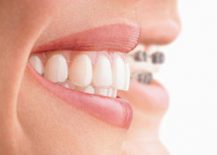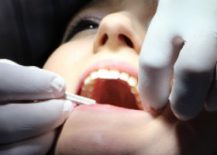How does diet affect oral health? Here at Smilessence, we offer advice and guidance on how our patients can protect their teeth and gums as well as a choice of treatments to resolve issues and improve the smile.
As the dentist in Molesey, we appreciate that our patients want to do as much as possible to safeguard their oral health and considering what is consumed on a regular basis should be an important part of that. This is our guide on what foods and drinks should be kept to a minimum, and what can actively help to strengthen the teeth and gums.
What not to eat
Most people know that consuming a lot of sugar is harmful to oral health and the health in general. Cakes, sweets, chocolate and desserts are all especially high in sugar, and regular consumption of these can wear away the enamel of the teeth before causing cavities and general deterioration.
As the dentist in Molesey, we understand that many people enjoy these kinds of treats and do not necessarily think they should be avoided altogether. However, they should be eaten on special occasions or just once a week or so if the patient wants to limit any potential damage to their teeth.
Although lots of people are mindful of their choices when it comes to obviously sugary foods, many do not realise that there are some foods that can be hidden sources of high sugar content. Pre-prepared meals that are purchased to reheat in the microwave or oven often feature a lot of sugar that may not be clear due to them being composed of savoury foodstuffs.
Checking the packaging for sugar levels or looking for the traffic light system that many meals now feature for ascertaining sugar, fat and salt levels can help people to make the right choices.
Fizzy drinks are often seen as harmless, but even the low or no sugar versions can compromise a person’s oral health. This is because they contain acid, which attacks the teeth, making them vulnerable to erosion and damage.
What foods are good for the teeth?
Generally speaking, as the dentist in Molesey, we advise our patients to enjoy a diet that features a wide variety of fruits and vegetables. Crunchy vegetables in particular are a great choice as they are a natural means of cleaning the teeth and encouraging the production of saliva, an important protector of the teeth and gums. For example, tucking into crudites of carrot and celery sticks can be an easy way to improve oral health.
Many people who have healthy teeth and gums are regular consumers of dairy products. Foods such as cheese, yoghurt and milk can all help to make the teeth stronger. The calcium and casein found in these foods helps to make the teeth more resilient and can also take care of the enamel. Enamel is essential for preventing the teeth from becoming damaged or eroded, and healthy supplies of it mean that tooth sensitivity is much less likely.














